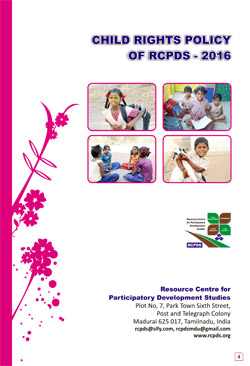Gender Policy Of Rcpds
 RCPDS aim for excellence by positive engagement with male, female and Trans people. In this way we will make the most of the potential of the individual and so benefit the organisation and local communities.
RCPDS aim for excellence by positive engagement with male, female and Trans people. In this way we will make the most of the potential of the individual and so benefit the organisation and local communities.
The Gender Policy describes the specific actions we are taking to tackle assumptions about gender and transphobia. In doing this we will work with our male, female and transgender staff as well community members as a whole.
Basic understanding of Gender by the authors and terms used in this policy paper …..
- SEX is something that identifies the biological differences between women and men.
- GENDER is the culturally specific set of characteristics that identifies the social behaviors of women and men, and the relationship between them. Gender, therefore, refers not simply to women and men, but also to the relationship between them and the way it is socially constructed. It is a relational term that, by definition, includes women and men. Like the concepts of class, race, ethnicity, gender is an analytical measure for understanding social processes.
-
GENDER EQUITY is the process of achieving fairness among women and men. To ensure fairness, measures must often be made available to compensate for historical and social disadvantages that prevent women and men from operating on a level playing field. Equity leads to equality.
-
GENDER EQUALITY means that women and men enjoy the same status. Gender equality means that women and men have equal conditions for realizing their full human rights and potential to contribute to national, political, economic, social and cultural development, and to benefit from the results. Gender equality is therefore society valuing equally similarities and the differences between women and men as well as the varying roles they play.

